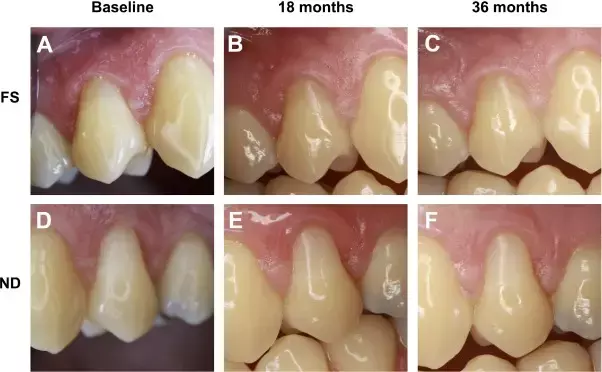- Home
- Medical news & Guidelines
- Anesthesiology
- Cardiology and CTVS
- Critical Care
- Dentistry
- Dermatology
- Diabetes and Endocrinology
- ENT
- Gastroenterology
- Medicine
- Nephrology
- Neurology
- Obstretics-Gynaecology
- Oncology
- Ophthalmology
- Orthopaedics
- Pediatrics-Neonatology
- Psychiatry
- Pulmonology
- Radiology
- Surgery
- Urology
- Laboratory Medicine
- Diet
- Nursing
- Paramedical
- Physiotherapy
- Health news
- Fact Check
- Bone Health Fact Check
- Brain Health Fact Check
- Cancer Related Fact Check
- Child Care Fact Check
- Dental and oral health fact check
- Diabetes and metabolic health fact check
- Diet and Nutrition Fact Check
- Eye and ENT Care Fact Check
- Fitness fact check
- Gut health fact check
- Heart health fact check
- Kidney health fact check
- Medical education fact check
- Men's health fact check
- Respiratory fact check
- Skin and hair care fact check
- Vaccine and Immunization fact check
- Women's health fact check
- AYUSH
- State News
- Andaman and Nicobar Islands
- Andhra Pradesh
- Arunachal Pradesh
- Assam
- Bihar
- Chandigarh
- Chattisgarh
- Dadra and Nagar Haveli
- Daman and Diu
- Delhi
- Goa
- Gujarat
- Haryana
- Himachal Pradesh
- Jammu & Kashmir
- Jharkhand
- Karnataka
- Kerala
- Ladakh
- Lakshadweep
- Madhya Pradesh
- Maharashtra
- Manipur
- Meghalaya
- Mizoram
- Nagaland
- Odisha
- Puducherry
- Punjab
- Rajasthan
- Sikkim
- Tamil Nadu
- Telangana
- Tripura
- Uttar Pradesh
- Uttrakhand
- West Bengal
- Medical Education
- Industry
Preheated thermoviscous composite resin useful option for restoring noncarious cervical lesions restorations: Study

Preheated thermoviscous composite resin useful option for restoring noncarious cervical lesions restorations suggests a new study published in the Journal of Dentistry.
This 24-month, double-blind, split-mouth randomized clinical trial aimed to compare the retention rates of a preheated thermoviscous composite resin (PHT) compared to a non-heated composite resin (NHT) in non-carious cervical lesions (NCCLs). A total of 120 restorations were restored on NCCLs using a preheated (VisCalor bulk, Voco GmbH) and a non-heated (Admira Fusion, Voco GmbH) composite resins with 60 restorations per group. A universal adhesive in the selective enamel conditioning was applied. In the PHT group, the composite was heated at 68 °C for using a bench heater. In the NHT group, no heating was employed. Both restorative materials were dispensed into caps and inserted into the NCCLs. The restorations were evaluated at baseline, 6, 12, 18, and after 24 months of clinical service using the FDI criteria. Statistical analysis was performed with Kaplan–Meier estimation analysis for retention/fracture rate and Chi-square test for the other FDI parameters (α=0.05).
Results: After 24 months 108 restorations were assessed. Seven restorations were lost (two for PHT group and five for NHT group), and the retention rates (95 % confidence interval [CI]) were 96.7 % (81.5–99.9) for PHT group and 90.8 % (81.1–96.0) for NHT group, with no statistical differences between them (p > 0.05). The hazard ratio (95 % CI) was 0.52 (0.27 to 1.01), with no significant difference within groups. In terms of all other FDI parameters that were assessed, all restorations were deemed clinically acceptable. Both composites showed high rates of retention rates after 24 months. The clinical performance of the new preheated thermoviscous was found to be as good as the non-heated composite after 24-month of clinical evaluation in non-carious cervical lesions.
Reference:
Michael Willian Favoreto, Taynara de Souza Carneiro, Romina Ñaupari-Villasante, Deisy Cristina Cordeiro, Gabriel David Cochinski, Thais Vilalba Paniagua Machado do Nascimento, Thalita de Paris Matos, Matheus Coelho Bandeca, Alessandra Reis, Alessandro D. Loguercio. Clinical performance of preheating thermoviscous composite resin for non-carious cervical lesions restoration: A 24-month randomized clinical trial. Journal of Dentistry, Volume 144, 2024, 104930, ISSN 0300-5712, https://doi.org/10.1016/j.jdent.2024.104930.
(https://www.sciencedirect.com/science/article/pii/S0300571224001003)
Dr. Shravani Dali has completed her BDS from Pravara institute of medical sciences, loni. Following which she extensively worked in the healthcare sector for 2+ years. She has been actively involved in writing blogs in field of health and wellness. Currently she is pursuing her Masters of public health-health administration from Tata institute of social sciences. She can be contacted at editorial@medicaldialogues.in.
Dr Kamal Kant Kohli-MBBS, DTCD- a chest specialist with more than 30 years of practice and a flair for writing clinical articles, Dr Kamal Kant Kohli joined Medical Dialogues as a Chief Editor of Medical News. Besides writing articles, as an editor, he proofreads and verifies all the medical content published on Medical Dialogues including those coming from journals, studies,medical conferences,guidelines etc. Email: drkohli@medicaldialogues.in. Contact no. 011-43720751


